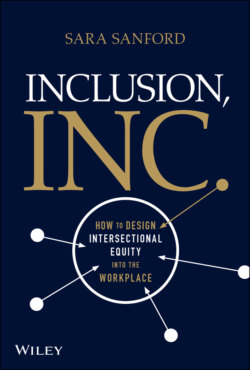Читать книгу Inclusion, Inc. - Sara Sanford - Страница 27
Beyond Moral Licensing
ОглавлениеTrainings don't work for another much simpler reason: We don't like being told what to do. Even with great diplomacy, trainers often come across as trying to police attendees' thoughts and actions. When we feel coerced into a choice or behavior, we often do just the opposite, even when we wouldn't have in any other situation, just to prove that we are our own person.
In research from the University of Toronto, subjects of a study read a brochure critiquing prejudice against Black people.16 When pressured to agree with it, participants actually strengthened their bias against Black people. When left to come to their own decisions about the reading, however, they were more inclined to agree with the critiques of prejudice.
Trainings that invite participants but allow participation to be fully voluntary have shown some promise. Those who voluntarily attend these trainings are more likely to promote Black men, Hispanic men, and Asian-American men and women. These findings don't necessarily speak to the role trainings play in countering bias, though. Participants who are willing to volunteer their time and energy to attend these trainings are probably already more comfortable with the concept of equity for underestimated groups, compared to their peers who choose not to attend.
